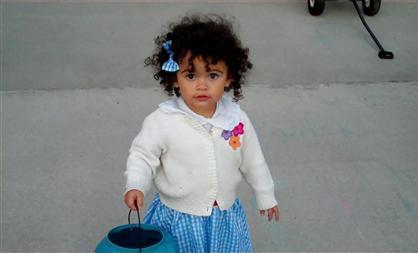U.S. Supreme Court to Decide Rare Family Law Case
The United States Supreme Court rarely hears family law cases, so the few family law cases the nine justices do take are worth examining. One of the first cases on the Supreme Court’s docket in 2013 involves an unusual twist for family law. Most child custody cases are decided by the “best interests of the child” standard; the party which obtains custody is the party most likely to provide a healthy and happy home for the child. Unlike the rest of the law, there are very few exceptions to the child’s best interest standard. Capobianco v. Brown, however, will examine one of the few exceptions which does exist.
In 2009, Matt and Melanie Capobianco adopted an infant named Veronica after Veronica’s birth mother relinquished parental rights. Veronica stayed with the Capobiancos for two years until her biological father, Dusten Brown, returned from military service in Iraq and contested custody over his daughter. Brown wanted custody of his child even though the veteran had signed papers relinquishing parental rights before Veronica was even born. Brown’s intentions and understanding of the legal papers is not clear, although it appears Brown had initially believed he was only signing away his obligation to pay child support. However, Brown’s former fiancée, Veronica’s birth mother, had claimed she would raise the child on her own.
 Since Brown had apparently given up his parental rights, his attorney found a creative solution: the Indian Child Welfare Act (ICWA). The act creates an exception, or at least a statutory preference, to the child’s best interests standard for Indian children. Critics of the law say it replaces the child’s interests for the interests of Indian tribes. Dusten Brown is a member of a Cherokee tribe. Social service agents had been unaware of Veronica’s cultural background because her biological mother had neglected to mention that fact. If Brown is successful in triggering the ICWA, the act would restore an Indian child to the custody of parent within an Indian tribe. South Carolina’s Supreme Court had ruled for Brown, who promptly took Veronica with him to Oklahoma. The Capobiancos have appealed to the United States Supreme Court.
Since Brown had apparently given up his parental rights, his attorney found a creative solution: the Indian Child Welfare Act (ICWA). The act creates an exception, or at least a statutory preference, to the child’s best interests standard for Indian children. Critics of the law say it replaces the child’s interests for the interests of Indian tribes. Dusten Brown is a member of a Cherokee tribe. Social service agents had been unaware of Veronica’s cultural background because her biological mother had neglected to mention that fact. If Brown is successful in triggering the ICWA, the act would restore an Indian child to the custody of parent within an Indian tribe. South Carolina’s Supreme Court had ruled for Brown, who promptly took Veronica with him to Oklahoma. The Capobiancos have appealed to the United States Supreme Court.
Brown had signed a contract giving up custody of his daughter, but it appears at first glance that the ICWA is a public policy which can void an agreement. A lower court case in 2008 makes preservation of Indian tribes a compelling state interest, although the survival of the Indian tribe must be in question. That reading is in line with Congressional intent though, since Congress had passed the ICWA specially to preserve Indian tribes. It would be absurd if federal law could be avoided through the mere use of a contract.
Despite the historical and legal arguments though, no exception to the child’s best interest standard should exist. The entire point of the standard is to ensure that adults do not place their own selfish desires over the needs of a child. Preserving cultural identity is just as much of an egoistic enterprise as using child custody as a means to hurt a former spouse. A child does not “belong” to a culture anymore than a child belongs to a sports team or religion. Culture should be an identity that an individual can adopt for themselves rather than an identity forced onto them by their parents.
Brown would argue that the child’s best interest standard has been abused in the past. The ICWA was passed because it was assumed that Indian culture was never in the child’s best interest, leading to many Indian children being removed from their parents for no real reason other than racism. Brown would argue that the ICWA is not an exception to the rule, but a preference by the law to placed Indian children with Indian parents where possible.
There is no doubt that those previous generations made many racist assumptions and that this generation should not delude themselves into believing they are somehow better than their ancestors. Giving preferences according to blood is not different from treating others poorly because of their culture though. If Brown is truly the best possible parent for Veronica, Brown should receive custody. Let us leave race out of the picture though.


Comments
I guess if a child is of Indian descent, their best interests are not as important as a child who is not of Indian ethnicity. How sad for children of Indian ethnicity. Basically, they are not as important or valuable as other children since the courts do not make determinations with their best interests in mind as they do with other children. What an injustice to these children.